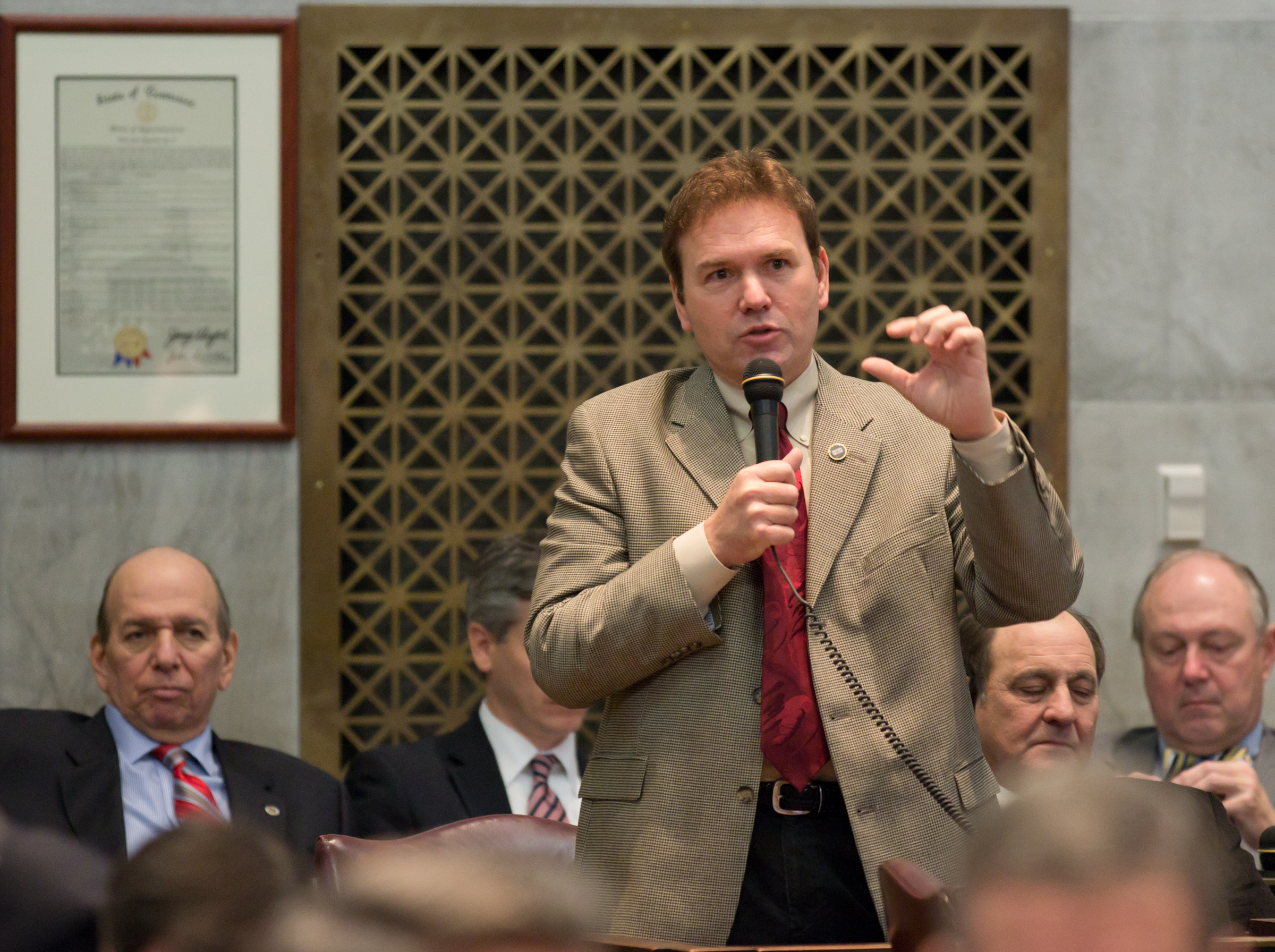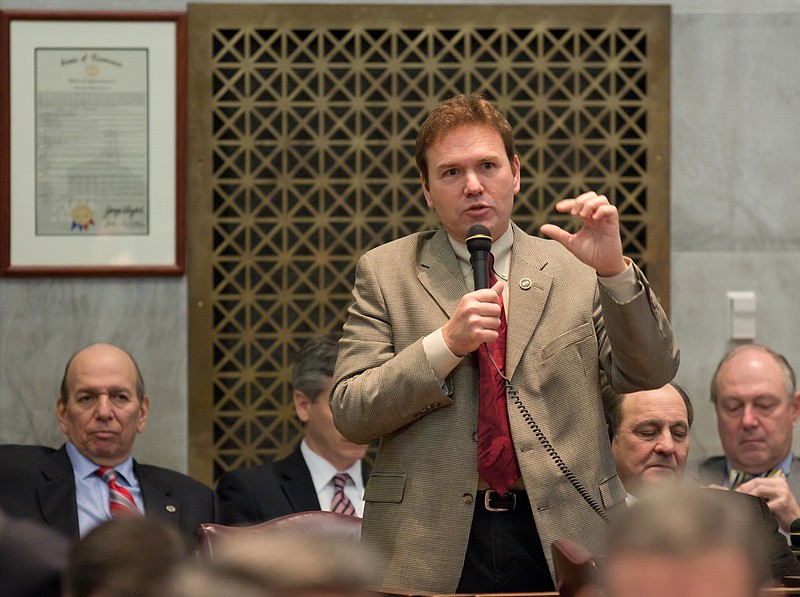 In this Jan. 26, 2012, photo, Republican Rep. Philip Johnson of Pegram discusses his proposal to loosen restrictions on lobbyist receptions for lawmakers during an ethics training session in the House chamber in Nashville, Tenn. Under current law, all 132 state lawmakers must be invited to receptions hosted by employers of lobbyists. Johnson's bill would allow those receptions to be held for just the members of legislative committees in either chamber.
In this Jan. 26, 2012, photo, Republican Rep. Philip Johnson of Pegram discusses his proposal to loosen restrictions on lobbyist receptions for lawmakers during an ethics training session in the House chamber in Nashville, Tenn. Under current law, all 132 state lawmakers must be invited to receptions hosted by employers of lobbyists. Johnson's bill would allow those receptions to be held for just the members of legislative committees in either chamber.NASHVILLE - A bill would make it easier for lobbyists to wine and dine lawmakers, a move that critics say would be a "step backward" from ethics reforms imposed on the General Assembly after the FBI's Tennessee Waltz bribery sting of 2005.
Republican Rep. Philip Johnson of Pegram introduced the bill, which would allow employers of lobbyists to host receptions for standing committees in either chamber. Current law bans receptions, where food and alcohol often are served, unless all 132 state lawmakers are invited.
"Those [events] are extremely expensive, and actually it has limited the citizens' access to us," Johnson said in remarks on the House floor during annual ethics training Thursday.
Johnson's proposal comes at a time when spending on lawmaker receptions is setting new highs. An Associated Press review of lobbyist disclosures shows that nearly $620,000 was spent on lawmaker receptions last year, a 36 percent increase from 2010.
The Tennessee Farm Bureau hosted last year's most expensive reception at $23,661, while Vanderbilt's sponsorship of the members versus interns basketball game was the cheapest at a cost of $626. The average event cost was $6,807.
Dick Williams, chairman of Common Cause Tennessee, said changing the current rules would allow lobbyists to concentrate their spending on lawmakers with control over measures that affect their clients.
"The idea is that you invite the whole General Assembly - and that means you're not just speaking to a small group," Williams said. "And part of the whole purpose was to keep you from just focusing on a committee that your particular bill might be going through."
Nothing in the ethics law prohibits lawmakers from attending constituent events or accepting invitations from groups that don't employ a lobbyist.
Drew Rawlins, executive director of the Tennessee Bureau of Ethics and Campaign Finance, said his agency would be capable of monitoring reception expenditures under Johnson's proposal, but stressed that it's up to the Legislature to decide whether to make the policy change.
The restraints and disclosure requirements for lawmaker receptions were among several sweeping changes to ethics laws adopted in a special session of the Legislature called in 2006 to the FBI sting that netted four lawmakers and an ex-senator accused of selling their votes.
Under the previous rules, lobbyist groups could pay for meals and drinks for committees or delegations, giving rise to cases where members would be invited on short notice and only one or two lawmakers would show up to have their tabs picked up by lobbyists.
Lobbying groups have spent $2.45 million on lawmaker receptions since the new rules went into effect in 2006.
Lawmakers and lobbyists almost immediately began to chafe under the rules of the stand-alone Ethics Commission created under the new law, with a common refrain being that bribery was already an offense before the Tennessee Waltz arrests.
Members of both parties complained about the annual limit of $50 - now increased to $55 due to inflation - for how much lobbyists or their employers can spend on entertaining lawmakers. Capitol insiders also grumbled about increased disclosure, training requirements and fees.
The Ethics Commission quickly became mired in infighting among commissioners and the executive director they hired from New York. The panel was merged into the Registry of Election Finance in 2009 and has been a far more subdued board ever since.
The board of the Tennessee Lobbyists Association has not yet had a chance to review the proposed changes, said Mark Greene, the organization's lobbyist.
Williams, of Common Cause, said he hopes Johnson's measure is quickly abandoned.
"It's a bad idea, a step backward from where we've gone," Williams said. "I would hope it doesn't get a lot of traction."
